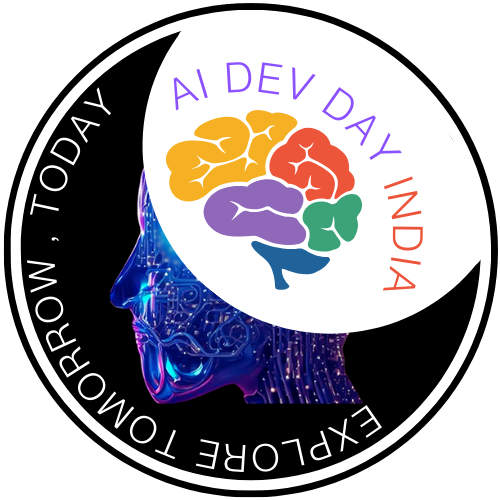NVIDIA & Korea Launch Massive 260,000 GPU 'AI Factory' Initiative
Published on November 3, 2025
South Korea has launched a landmark national initiative, securing over 260,000 of NVIDIA's cutting-edge Blackwell GPU chips to construct a massive Sovereign AI infrastructure. This monumental NVIDIA South Korea AI partnership, unveiled by CEO Jensen Huang, is designed to build a network of powerful AI Factory facilities that will propel the nation's industrial and technological future.
This massive technological leap was juxtaposed by a now-viral, informal summit over fried chicken and beer. Jensen Huang met with Samsung Chairman Lee Jae-yong and Hyundai Chair Euisun Chung at a casual Seoul restaurant, sealing a multi-trillion-dollar alliance with a toast and a handshake.
The scene perfectly captured the essence of the deal: it's more than just a hardware transaction. This initiative represents a strategic national pivot designed to rewire South Korea’s entire industrial base. By building a comprehensive AI ecosystem, the nation aims to secure its future technological competitiveness, drive digital transformation across all sectors, and solidify its position as a global AI leader.
A Nation's Quarter-Million GPU Bet on Sovereign AI
At the heart of this national overhaul are two distinct pillars: a government-led push for a Sovereign AI network and a massive private-sector mobilization to build industrial 'AI Factories'.
The "Sovereign AI" Initiative
The public-sector component of the deal is a sovereign AI infrastructure program led by South Korea's Ministry of Science and ICT (MSIT). This initiative will deploy as many as 50,000 of the latest NVIDIA GPUs through cloud providers such as NAVER Cloud, with an initial wave of 13,000 NVIDIA Blackwell GPU units scheduled for the coming years. The stated goal is to build a national-scale AI ecosystem and infrastructure to drive the country's digital transformation.
Building Industrial "AI Factories"
The private-sector investment is equally staggering, with Korea's largest corporations committing to building their own "AI Factories" to transform their industries.
- Samsung: Building an AI Factory with up to 50,000 NVIDIA GPUs. The facility will be used to create digital twins for semiconductor manufacturing and to advance its robotics portfolio with the NVIDIA Cosmos and Isaac GR00T platforms.
- SK Group: Designing an AI factory for up to 60,000 GPUs, which will include an AI cloud. This will empower domestic manufacturers to build digital twins and advanced robotics applications.
- Hyundai Motor Group: Building an NVIDIA AI supercomputer featuring 50,000 Blackwell GPU units. This will accelerate the training of models for autonomous driving, smart factories, and robotics as part of an approximately $3 billion investment in Korea's physical AI landscape.
- NAVER: Adding another 60,000 GPUs to its infrastructure. This expansion targets sovereign and physical AI workloads, including the development of industry-specific models for sectors like shipbuilding and security.

The "Chimaek Summit": How Jensen Huang Sealed a Trillion-Dollar Alliance Over Beer and Chicken
The historic partnership was cemented not in a boardroom, but over a casual meal of fried chicken and beer, a Korean tradition known as "chimaek", in a highly symbolic meeting that captured global attention.
More Than Just a Meal
The meeting between Jensen Huang, Samsung's Lee Jae-yong, and Hyundai's Euisun Chung at the Kkanbu Chicken restaurant was defined by its casual atmosphere. The choice of venue was significant, as "kkanbu" is Korean slang for "close friends," a point Huang acknowledged. During the dinner, Huang presented Lee with a signed card that read, “Jay. To our partnership and future of the world,” along with Nvidia’s DGX Spark AI supercomputer. The leaders solidified their bond by linking arms for a "love shot," a Korean gesture reserved for close companions.
The Huang Effect
The public and media reaction to the dinner was immense. National broadcasters livestreamed the event, while around 500 fans and reporters crowded the area outside the restaurant. The market impact was immediate and tangible: the day after the summit, shares of a competitor chicken company, Kyochon F&B, rose 20%, while poultry processor Cherrybro hit its 30% daily trading limit. This "Huang effect" illustrates not just the CEO's celebrity status, but the market's acute awareness that informal, personal alliances are now driving multi-trillion-dollar industrial policy in the AI era.
Korea's Gambit to Secure Its Tech Future with an AI Factory Strategy
This partnership is not merely an upgrade; it's a calculated response to a clear and present threat to South Korea's technological dominance.
Beyond Memory Chips: A Pivot to System Semiconductors
According to an analysis by the Korea Institute for International Economic Policy (KIEP), while South Korea has long dominated the global market for memory semiconductors like DRAM and NAND, its competitiveness in system semiconductors has stagnated. Critically, the report finds the competitiveness gap with industry leaders like Taiwan has "widened over time."
This landmark deal represents a strategic national push to strengthen its position in the high-value system semiconductor sector. The KIEP report reveals a crucial nuance: while Samsung files a massive quantity of system semiconductor patents, its Technology Strength Index (TSI)—a measure of a patent's impact and influence—has remained "relatively stagnant." In stark contrast, competitors like Apple and Qualcomm boast much higher TSI scores. This data powerfully illustrates why an AI Factory strategy is so vital: Korea must pivot from sheer volume to high-value, impactful innovation, and this deal provides the raw computational power to do so.
A National Strategy for Physical AI
The investment is directly tied to tangible industrial applications that will redefine manufacturing and mobility. As Hyundai's Euisun Chung stated, the collaboration will build "advanced technologies" and lay the "foundation for a robust AI ecosystem in Korea." "Physical AI" refers to the application of AI in real-world systems like robotics, autonomous driving, and smart manufacturing. The new AI Factory model will enable Hyundai to simulate entire factory operations using NVIDIA Omniverse and develop next-generation autonomous vehicles powered by the NVIDIA DRIVE AGX Thor platform.

The Geopolitical Context: APEC and Global Alliances in the Age of AI
The announcements were strategically timed, taking place within a significant international political and economic context that underscores the deal's global importance.
AI on the APEC Agenda
These historic partnerships were unveiled as South Korea hosts the Asia-Pacific Economic Cooperation (APEC) Summit in Gyeongju. As the APEC 2025 host, South Korea has explicitly placed AI cooperation and responses to demographic shifts at the top of its agenda, signaling its intent to lead regional policy on these critical issues.
Navigating US Export Restrictions
NVIDIA's powerful Blackwell GPU chips are subject to strict U.S. national security export restrictions that prevent their sale to certain countries, including China. South Korea, as a close U.S. ally, is not subject to these bans. This deal therefore serves as a prime example of strategic technology alliances among allied nations, shaping the new geopolitical landscape of the AI era.
Future Outlook: Rewiring a Nation with a Sovereign AI Blueprint
This initiative is designed to create a lasting impact, fostering innovation from the national level down to the startup ecosystem and positioning South Korea for long-term leadership.
Next-Gen Language Models and 6G
The partnership extends beyond hardware to foundational AI research. An initiative led by MSIT will use NVIDIA NeMo software and Nemotron datasets to develop advanced Korean language models. Furthermore, NVIDIA is collaborating with industry leaders like Samsung and SK Telecom to develop AI-RAN and 6G infrastructure, paving the way for next-generation mobile networks that will enable widespread robotics adoption.
Fostering a Startup Ecosystem
To ensure innovation thrives beyond its corporate giants, NVIDIA is expanding its Inception program in Korea. This will provide startups with critical access to computing infrastructure and support from leading venture capital firms. A new Center of Excellence will also be established to help startups build physical AI applications, ensuring a vibrant and dynamic AI ecosystem for years to come.
Frequently Asked Questions (FAQs)
1. What is "Sovereign AI" and why is it important for South Korea?
Sovereign AI refers to a national-scale AI infrastructure and ecosystem that allows a nation to build and control its own AI capabilities using its own data. It is critical for South Korea because it enhances economic independence, boosts national security, and ensures that the country's digital transformation aligns with its own strategic priorities and cultural context.
2. Why is this massive NVIDIA South Korea AI deal happening now?
Several key factors have converged to make this the opportune moment. First, South Korea is hosting the APEC 2025 summit and has made AI a central theme of its leadership agenda. Second, the nation faces increasing competition in the global semiconductor market and is making a strategic pivot from memory chips to higher-value system and AI chips. Finally, there is a global race among nations and corporations to secure the advanced Blackwell GPU hardware required to lead in the next generation of AI development.
3. What does the casual "chicken and beer" meeting between Jensen Huang and Korean tech leaders signify?
The meeting symbolizes a new era of deep, collaborative alliances in the tech industry that extend beyond formal corporate agreements. It highlights the critical importance of personal relationships and trust—encapsulated by the Korean concept of "kkanbu" (close friends)—in forging multi-trillion-dollar partnerships that will define the future of the global technology landscape.




